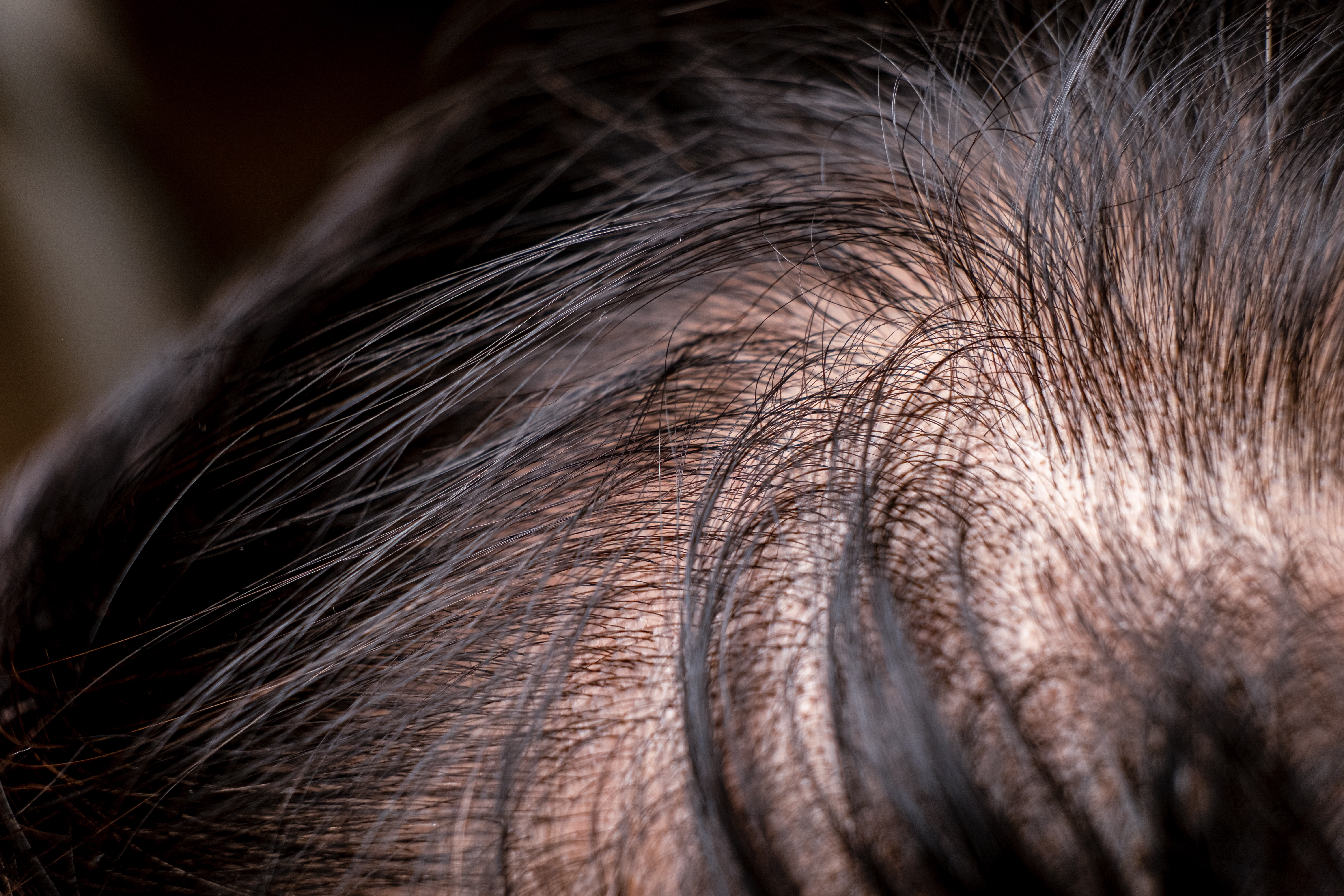Signs of Hormonal Imbalance Women Over 40 Shouldn't Ignore
As women age, particularly after the age of 40, their bodies undergo significant changes, many of which are driven by hormonal shifts. These hormonal fluctuations can lead to a variety of physical and emotional symptoms that can affect overall well-being. Understanding these changes is crucial for maintaining health and quality of life. Hormones like estrogen, progesterone, and testosterone play pivotal roles in regulating numerous bodily functions, and any imbalance can lead to noticeable changes. This article delves into the top 12 crucial signs of hormonal imbalances that women over 40 should never overlook, offering insights into recognizing and addressing these issues effectively. Let's get started!
1. Unexplained Weight Gain

One of the most noticeable signs of hormonal imbalance is unexplained weight gain. As women age, metabolism naturally slows down, but hormonal imbalances can exacerbate this process. Estrogen levels often decline, which can lead to increased fat storage, particularly around the abdomen. Additionally, cortisol, the stress hormone, can also contribute to weight gain when it is consistently elevated. Women may find that despite maintaining a healthy diet and exercise routine, they still gain weight. This can be frustrating and disheartening, but understanding the role hormones play can help in seeking appropriate interventions.
2. Fatigue and Low Energy

Persistent fatigue and low energy levels are common symptoms that can indicate a hormonal imbalance. Hormones such as thyroid hormones, cortisol, and insulin play significant roles in regulating energy levels. An underactive thyroid, or hypothyroidism, can lead to feelings of constant tiredness. Similarly, adrenal fatigue, where the adrenal glands produce insufficient amounts of certain hormones, can also result in a lack of energy. Women over 40 may find themselves feeling exhausted even after a full night's sleep, which can affect productivity and quality of life. Recognizing these signs early can lead to effective management strategies.
3. Mood Swings and Irritability

Hormonal imbalances can significantly impact mood and emotional well-being. Fluctuations in estrogen and progesterone levels can lead to mood swings, irritability, and even depression. These changes can be particularly pronounced during perimenopause, the transitional period before menopause. Women may experience heightened emotions, anxiety, or a general sense of unease. It's important to differentiate between normal mood variations and those that might indicate a hormonal issue. Understanding the connection between hormones and mood can empower women to seek help and explore treatments that can alleviate these symptoms.
4. Sleep Disturbances

Sleep is essential for overall health, yet hormonal imbalances can lead to significant disruptions in sleep patterns. Estrogen and progesterone influence sleep quality, and imbalances can result in insomnia or fragmented sleep. Hot flashes and night sweats, common during perimenopause and menopause, can also interfere with restful sleep. Women may find themselves waking up frequently or struggling to fall asleep, leading to daytime fatigue and irritability. Addressing hormonal imbalances through lifestyle changes or medical interventions can improve sleep quality and, consequently, overall health.
5. Decreased Libido

A decrease in sexual desire is another common sign of hormonal imbalance. Estrogen, progesterone, and testosterone all play roles in regulating libido. As these hormone levels fluctuate, women may experience a reduced interest in sexual activity. This can be due to physical changes, such as vaginal dryness, or emotional factors, like stress and mood swings. Understanding that these changes can be hormonally driven is crucial for addressing the issue. Open communication with a healthcare provider can lead to effective treatments that can help restore libido and improve intimate relationships.
6. Irregular Periods

For women in their 40s, irregular menstrual cycles can be a sign of hormonal imbalance. As the body transitions towards menopause, periods may become unpredictable, with changes in flow and frequency. Estrogen and progesterone levels fluctuate, leading to irregularities. While some variability is normal, significant changes should not be ignored. Monitoring menstrual patterns and discussing any concerns with a healthcare provider can help in identifying underlying hormonal issues. Early intervention can provide relief and prevent further complications.
7. Hair Thinning and Loss

Hair health is closely linked to hormonal balance. Women over 40 may notice thinning hair or increased hair loss, which can be distressing. Estrogen helps maintain healthy hair, and declining levels can lead to hair thinning. Additionally, an imbalance in thyroid hormones can also contribute to hair loss. It's important to recognize that these changes may not solely be due to aging but could indicate a hormonal issue. Consulting with a healthcare professional can lead to a diagnosis and treatment plan that can help restore hair health.
8. Skin Changes

Hormonal imbalances can also manifest through changes in the skin. Women may experience dryness, acne, or increased sensitivity as hormone levels fluctuate. Estrogen helps keep the skin hydrated and supple, and a decline can lead to dryness and wrinkles. Conversely, increased levels of androgens can lead to acne. These changes can affect self-esteem and confidence. Understanding the hormonal basis of these skin changes can lead to targeted treatments that can improve skin health and appearance.
9. Digestive Issues

The connection between hormones and digestive health is often overlooked. However, hormonal imbalances can lead to digestive issues such as bloating, constipation, or diarrhea. Estrogen and progesterone can influence gut motility and the balance of gut bacteria. Women may notice changes in their digestive system as they approach menopause. Recognizing these changes as potential signs of hormonal imbalance can lead to appropriate dietary adjustments and treatments that can alleviate symptoms and improve digestive health.
10. Memory and Concentration Problems

Cognitive functions, including memory and concentration, can be affected by hormonal imbalances. Women over 40 may experience brain fog, forgetfulness, or difficulty concentrating. Estrogen plays a role in brain health, and declining levels can impact cognitive functions. Stress and lack of sleep, often associated with hormonal changes, can exacerbate these issues. Understanding the hormonal connection to cognitive changes can lead to strategies that improve mental clarity and focus, enhancing overall quality of life.
11. Hot Flashes and Night Sweats

Hot flashes and night sweats are hallmark symptoms of hormonal imbalance during perimenopause and menopause. They are caused by fluctuations in estrogen levels, which affect the body's temperature regulation. These symptoms can be uncomfortable and disruptive, affecting sleep and daily activities. Recognizing hot flashes and night sweats as signs of hormonal changes can lead to effective management strategies, such as lifestyle modifications and medical treatments, that can provide relief and improve comfort.
12. Bone Density Changes

Hormonal imbalances can also affect bone health. Estrogen plays a crucial role in maintaining bone density, and declining levels can lead to weakened bones and an increased risk of osteoporosis. Women over 40 should be aware of the impact of hormonal changes on bone health and take proactive steps to protect their bones. This can include dietary changes, exercise, and medical interventions that can help maintain bone density and prevent fractures and bone loss.
13. Emotional Well-being and Stress Management

Finally, hormonal imbalances can significantly impact emotional well-being and stress management. Women may find themselves more susceptible to stress and emotional fluctuations as hormone levels change. Recognizing the role of hormones in emotional health can lead to effective coping strategies, such as mindfulness, therapy, and stress-reduction techniques. Understanding the connection between hormones and emotions can empower women to take charge of their mental health and enhance their overall quality of life.
Recognizing and addressing hormonal imbalances is crucial for women over 40 to maintain their health and well-being. By understanding the signs and symptoms, women can seek appropriate interventions and make informed decisions about their health. Whether through lifestyle changes, medical treatments, or a combination of both, managing hormonal imbalances can lead to a healthier, more fulfilling life. As women navigate this stage of life, awareness and proactive management of hormonal health can provide empowerment and improved quality of life.